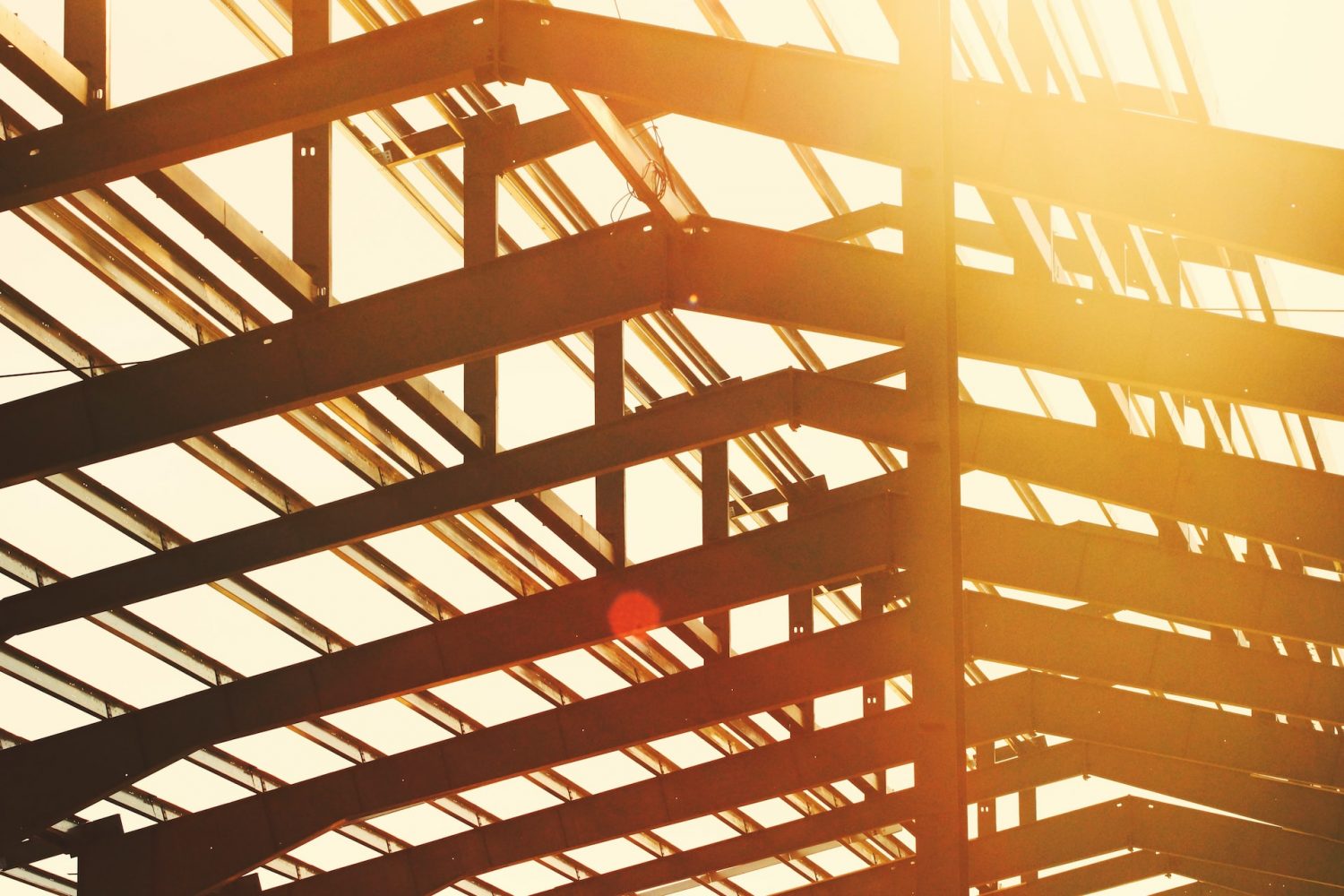Steel frame vs timber frame
02nd Aug

During any construction project, it is important to feel confident that you are making the right decisions. Especially when it comes to the building material that will be used to create the foundation of the work. So, we have decided to compare two increasingly popular methods of construction, steel frames and timber frames. This will give you a better understanding into which will be the best option for your project.
Speed of construction
Generally, both frames are assembled in similar ways, meaning they should be equally quick to set up. The process can take a bit longer with steel framed houses as it requires more tools and labour to put each element together. However, this does mean you have complete peace of mind that the frame is structurally sound.
Timber frames can come pre-manufactured and can be put together by carpenters or DIY enthusiasts. Whereas steel frames need structural steel fabricators to weld the frame together. If your project is fairly small and time is of the essence timber could be the better option. For large scale projects though, where the frame needs to be expertly put together to ensure its stability in the long term and in any conditions, steel will likely be your best bet.
Sustainability and impact on the environment
Becoming more sustainable across all industries and conserving the environment is essential nowadays. This means that the need for environmentally friendly materials is essential.
Both timber and steel have benefits and drawbacks relating to their environmental impact, so it is important carefully consider the needs of your project and your options before committing to a decision.
Using a structural steel frame will result in less deforestation than timber, which depends on both forests and the breaking down of natural environments to make space for more plantations. Steel frame construction is more environmentally friendly in this way.
However, the other side of the argument is that when the need for timber increases, so too does the demand for more forests. This has the benefit of reducing CO2 levels in the air and promote ethical and sustainable use of forests.
Steel will produce less waste than timber because frames that are made from steel are manufactured in a very precise way. Whereas due to timber being a natural product, there are some imperfections that can render some of the wood unusable.
Steel requires a lot of energy to create, with the production process leaving large carbon footprints that negatively impact the environment. The advantage of this though is that steel is 100% recyclable. So, after the intense production process, the steel can be used and then reused again.
The final consideration for sustainability and the environmental impact of these materials is regarding their thermal transfer. It is often argued that metal structures and steel fabrications provide better seals for windows and doors. This means that when it is paired with efficient and high-quality wall insulation, a metal frame would limit heat loss from the windows and walls.
There is some debate though as some people argue that there is greater thermal transfer in steel than timber. This would reduce the need for heating and cooling systems as the frame would regulate the temperature in the building to the season.
Robustness
Steel is renowned for being incredibly strong and durable, meaning it comes fully protected from ants and termites which could destroy a timber frame. It will take a significant amount of effort and maintenance to protect timber from wood-loving insects. Even though the salty air of coastal areas is not a close friend of steel, it is still easier to care for and keep in good condition in comparison to timber. Steel fabrication is simply unmatched in terms of strength and robustness.
Soundproofing
Timber is often associated with squeaky homes, which is not ideal when it comes to soundproofing. It’s no secret that the sound insulation of timber frame structures is usually not the best, due to it being such a lightweight material. This means its ability to isolate all types of sound is not as effective as with a steel frame.
Conclusion
When it comes down to a steel vs timber frame, your personal preferences and the details of your project will be the main deciding factor. However, as expert structural steel fabricators we naturally feel that steel frames are the favourable option in most projects. Contact us today to find out more about FEM and what we can do for you.